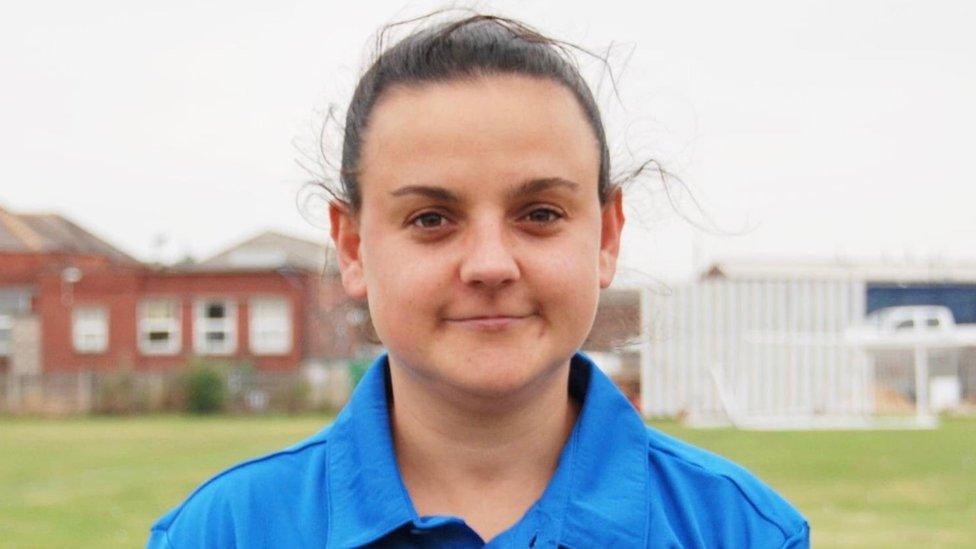Calls for Treasury to cut VAT on defibrillators
- Published
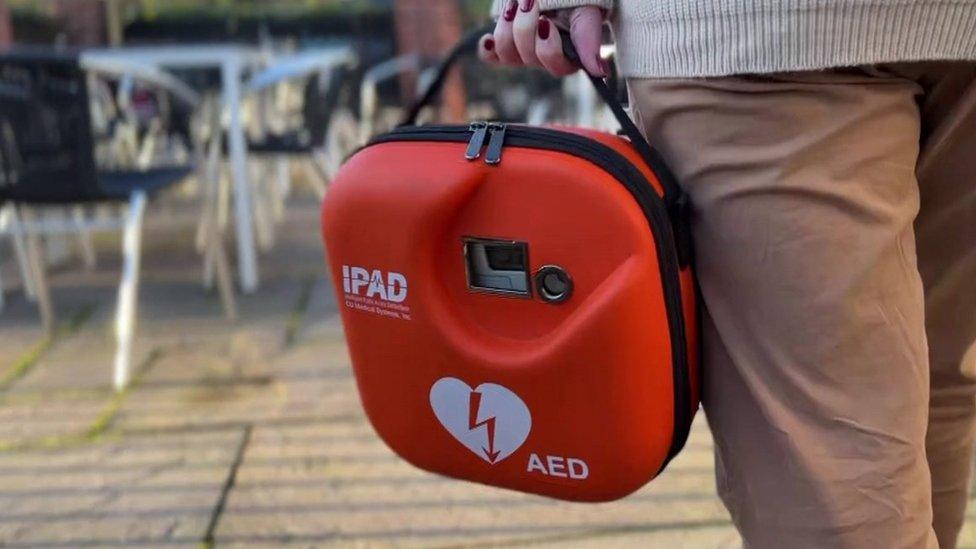
Labour MP John Healey said cutting VAT would have "minimal" impact on the government's finances
A sports therapist who helped save a referee's life when he collapsed during a football match has backed calls to cut VAT on defibrillators.
Shannon Brooks stepped in after Andrew Jarvis suffered a suspected heart attack during the match in 2021.
She has since raised funds to buy three defibrillators, but said without VAT she could have bought four.
A Treasury spokesperson said it already provided "several VAT reliefs to help organisations buy defibrillators".
Ms Brooks was working for Hallam FC when Mr Jarvis collapsed before a game between the Sheffield-based side and Rainworth MWFC in Mansfield.
She said: "The VAT from three defibs would definitely more-or-less add up to a fourth, if not we'd only need to fundraise a little bit more.
"Obviously having a fourth would help in another community or another football team."
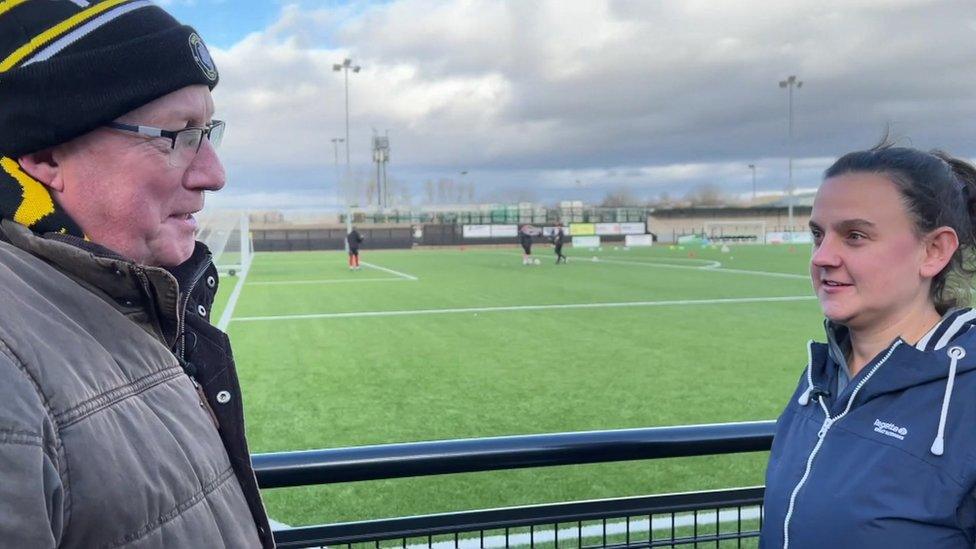
Shannon Brooks (right) saved Andrew Jarvis' life when he collapsed during a match in 2021
Wentworth and Dearne's Labour MP John Healey is spearheading calls for the government to remove the 20% tax which local sports teams and community groups must pay when purchasing the lifesaving equipment.
He said, if removed, the cost to the Treasury would be "minimal".
"It doesn't even trouble the Treasury when it does its figures at a Budget," he told the BBC.
"So, the chancellor could do it, he could do it with this Budget and it would help so many people."

For a chancellor looking for some good news in a budget before an election - you could say this might be an easy choice.
VAT has been removed before, most recently on period pants, and now he is under pressure to remove it from defibrillators.
Those fundraising for them often do so because they have suffered a personal tragedy where a defib might have helped.
They say the cost of the VAT could have been spent on more equipment rather than going to the government.
Money generated from VAT is of course spent on the public.
The Treasury says £161bn was raised in 2023-24 - but only a small fraction of that will be from defibrillator purchases.
Those who have lost someone, or had their life saved by a defibrillator, say having more of them available would outstrip the benefit of the revenue they raise.

Mr Healey's calls have also been supported by the family of Jessica Lally who died aged 26 when she died from a cardiac arrest.
Since her death in 2022 her family have raised money for 17 defibrillators around her hometown of Kimberworth, near Rotherham.
"We'd have another four defibrillators in the area if we didn't pay VAT," her mother, Joan Lally, said.
"I am proud that they are there and it keeps Jessica's name alive."
Mr Jarvis, from Worksop, said: "I find it totally unbelievable that there is VAT on something that clearly saves lives."
A Treasury spokesperson said: "We take the safety of the public seriously and provide several VAT reliefs to help organisations buy defibrillators and other first aid equipment.
"In addition, we are currently inviting community organisations to bid for funding as part of a £1 million grant scheme that expands public access to Automated External Defibrillators (AEDs), particularly in public places where they are most needed."

Follow BBC Yorkshire on Facebook, external, X (formerly Twitter), external and Instagram, external. Send your story ideas to yorkslincs.news@bbc.co.uk, external.
Related topics
- Published29 August 2023
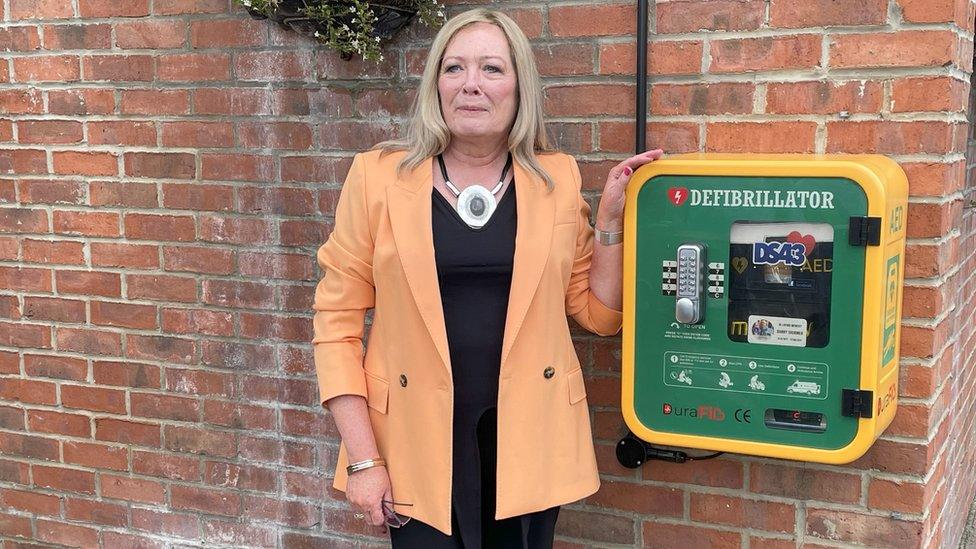
- Published23 June 2022
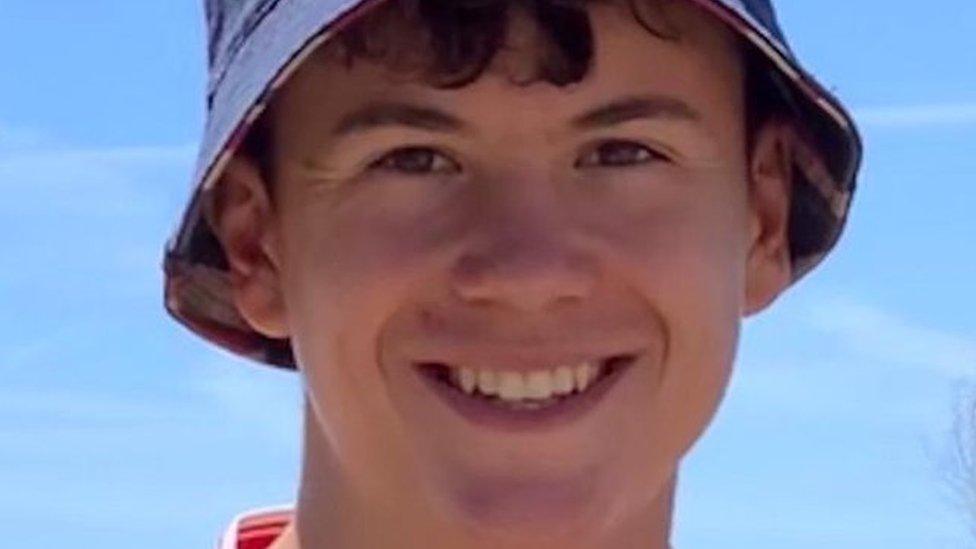
- Published16 August 2021
